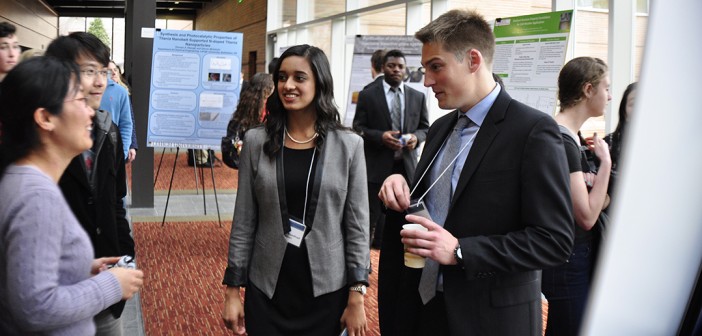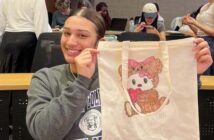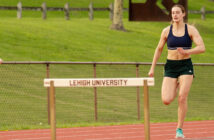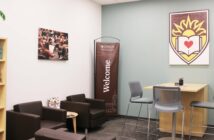The majority of people living with HIV live in resource-limited settings that lack accessibility to traditional laboratory-based tests. Existing point-of-care technologies for treatment monitoring are expensive and complex. Recently, five Lehigh alumni won an award for their viral diagnostic device that makes HIV treatment monitoring more accessible.
Kathryn Kundrod, ’15, Jay Fraser, ’15, Kaylynn Genemaras, ’15, Paul Schroder, ’15, and Andrew D’Onofrio, ’15, comprised the group. They developed the product — an inexpensive and simple device that determines if a patient’s medications are decreasing the amount of the HIV virus in the bloodstream — for their Integrated Product Development class, and won first place in the National Institute of Health’s Design by Biomedical Undergraduate Teams Challenge.
The team recently learned it is a finalist for the Collegiate Investors Competition, sponsored by the United States Patent and Trademark Office.
The students’ device meets the World Health Organization’s minimum detection requirement and provides results in under an hour. It also has the potential to increase accessibility to viral load testing.
The DEBUT Challenge is a competition for student undergraduate teams to design projects in the field of biomedical engineering. Kundrod said the competition is unique because designing biomedical engineering devices usually takes place at the upper level. Few devices are designed by undergraduates.
Susan Perry, a chemical engineering professor who assisted the team throughout its project, said the team first came to her with the goal of creating a product that would be of value to a large population.
“The underlying theme for them is to make a difference,” Perry said. “That to me is a very important piece to their story, because they weren’t driven by their own needs, but by the needs of others.”
The project was in the works for over two years. Fifty-nine eligible entries were received from 30 different universities and 18 different states.
“They embody the idea of teamwork and relied on each other’s strengths and followed this divide-and-conquer model to achieve the maximum that they could through all of the resources here at Lehigh,” Perry said.
Kundrod said it was amazing to be recognized on a national level. She also said it was rewarding and exciting because of how much the group members cared about the project.
“I think what I find so cool about this experience is that Lehigh gave us flexibility and trusted us to develop this as undergrads, which I think is pretty unique, and we’re really grateful for that,” Kundrod said. “There were so many people that were willing to meet with us for aspects about our project we didn’t understand … and we’re really grateful for all the support we’ve gotten along the way and the opportunity to even enter this competition.”
Fraser said the group’s next step is to get a provisional patent until they can raise enough money for a full one. Because the group members all have other commitments, such as graduate school, they plan on sponsoring Integrated Product Development teams at Lehigh to further develop the device to the point where companies would be comfortable licensing the technology.
Fraser acknowledged that the team has developed solid data but that the next step is to get the public interested in their device. He said that what the team does with this win in terms of visibility could make or break the project.
“There’s a lot of work up front, but I think some advice to pass down is don’t be afraid of the work upfront,” Fraser said. “If you’re ever trying to design a self-made project regardless of IPD or something else, because you never know where its going to take you … I would just say don’t be afraid of all the challenges and don’t give up on your ideas.”
Students interested in further developing this system for an IPD project should contact Fraser at [email protected].






Comment policy
Comments posted to The Brown and White website are reviewed by a moderator before being approved. Incendiary speech or harassing language, including comments targeted at individuals, may be deemed unacceptable and not published. Spam and other soliciting will also be declined.
The Brown and White also reserves the right to not publish entirely anonymous comments.